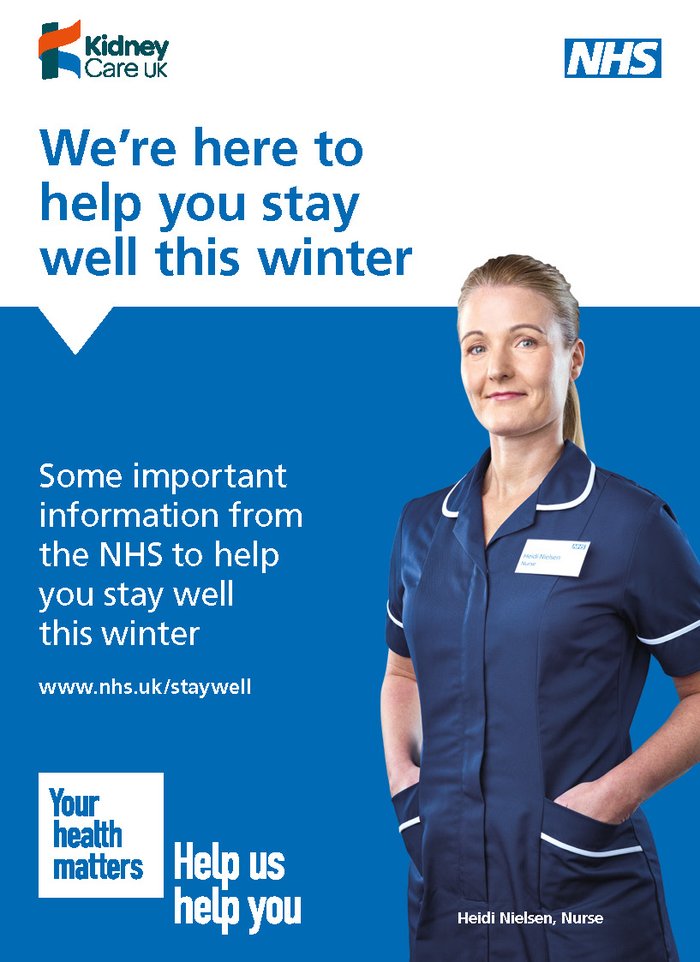Wrap up warm
A feeling of intense cold, whatever the weather, is common for people affected by chronic kidney disease (CKD). Dr Andy Stein, consultant nephrologist at University Hospital, Coventry, says: “In summer I see patients turning up for dialysis wearing four layers, coats and gloves. It isn’t a difference in core body temperature but what it is we don’t know – it’s an untapped area of research.”
When you're at home, keep the room where you spend most of your time heated to at least 18°C if you can and wear lots of thin layers to trap the heat and keep your core warm. Hot water bottles and heat pads for your body or gloves may help, too. When you go out, layer up and wear thick socks and a warm hat.
Stock up on skincare
Itchy skin can be one of the worst symptoms of CKD. In cold weather, make sure you have plenty of soothing moisturiser at home in case you can’t get out. Different creams suit different people but there’s no need to spend big – luxury names aren’t any better than own-brand products.
Be prepared
People on immunosuppressants are at higher risk of osteoporosis (brittle bones) so do take extra care to avoid trips and slips. Dr Stein explains, “If you fall you may be more likely to break a bone if you are taking steroids such as prednisolone.”
Put in your repeat prescriptions in plenty of time and get food and medicines delivered so you don’t have to go out when the ground is icy. Ask family, friends and neighbours for support and check with your GP, practice nurse or local councillor about voluntary groups that will help if you are stuck.
Use virtual appointments
Dr Stein says: “Particularly for older patients, coming to hospital can be a nightmare, from arranging transport to expensive parking to the risk of tripping and falling, and waiting around for hours. If you can get an online appointment, it’s much safer.”
Libraries often run free digital literacy sessions if you'd like some one-to-one guidance about booking digital consultations with your medical team.
Get your jabs
Almost half of people with CKD didn’t get the flu vaccination last year, yet immunisation can save lives.
“We strongly recommend vaccination, particularly for transplant patients, those not yet on dialysis or on immunosuppressant drugs," says Dr Stein. "If you get Covid-19 or a similar disease it can be very serious.”
It’s not too late to book your vaccinations; speak to your GP for advice.
Know your specialist nurse
Sometimes it’s hard to know who to approach with a problem, especially if you are looked after by several different teams. It’s worth getting the name and contact details for the kidney nurses and the consultants’ secretaries, so if you need help you don’t have to keep trying to navigate hospital switchboards and telephone systems.
Alert your energy company
Tell your power suppliers that you have kidney disease. They can add you to the Priority Services Register in case of power cuts.
If you are struggling with soaring energy bills, your provider needs to know you have medical problems. They have a duty to help vulnerable customers. Find out more in our kidney patients' guide to keeping your home warm.
Download the NHS Stay Well in Winter guide
We've worked with the NHS to produce a patient information guide to help you stay well this winter.
